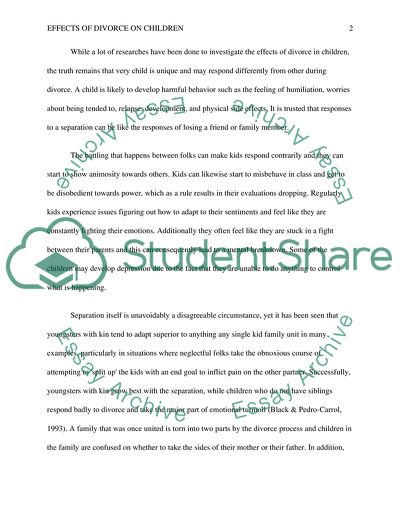Cite this document
(“Effects of Divorce in Children Essay Example | Topics and Well Written Essays - 2500 words”, n.d.)
Retrieved from https://studentshare.org/psychology/1701210-effects-of-divorce-in-children
Retrieved from https://studentshare.org/psychology/1701210-effects-of-divorce-in-children
(Effects of Divorce in Children Essay Example | Topics and Well Written Essays - 2500 Words)
https://studentshare.org/psychology/1701210-effects-of-divorce-in-children.
https://studentshare.org/psychology/1701210-effects-of-divorce-in-children.
“Effects of Divorce in Children Essay Example | Topics and Well Written Essays - 2500 Words”, n.d. https://studentshare.org/psychology/1701210-effects-of-divorce-in-children.


